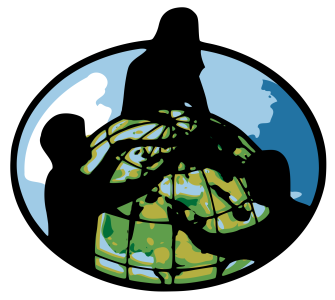I was late to the game watching “Black Panther.” Nearly a month after it opened, a friend of mine called me out for not having seen it, noting that “there are cultural conversations happening around this film, and until you watch it, you can’t be a part of them.”
She was, of course, right, and so a few days later I went to see it with a friend who works with me coaching first-year teachers. My expectations were already high, the hype was already real, and after I finally saw it, all I had to say is... WOW.
Beyond the fact that “Black Panther” is actually a fantastic film, the movie does an amazing job building a world that completely reimagines the narratives we often give communities of color, particularly the Black community, and how changing that mindset would affect the entire ecology of someone’s life.
Often, society looks at communities of color and identifies them as, whether their fault or not, in need of salvation. This deficit mindset around the communities we serve often means that, even when we do try and serve our students, we end up focusing on all the problems that they face instead of the strong values their cultures may have already brought to the table.
“Black Panther” shows us a world that shatters the deficit lens and reimagines one in which black culture and black people are not only empowered but normalizes the concept in the process. Instead of the token young black girl into science, the film that looks at Shuri, the Wakandan Princess with a penchant for technology and design, and says, “Well, of course a young black woman is killing the science and technology game. Why wouldn’t she be?” It does not force her to be humble about her brilliance as a way to justify it, as Vox noted, it just allows us to imagine a world where we accept that young women of color can be powerful, smart, and in charge simply because that’s the way they are.
And isn’t that powerful?
That’s why the fact that teachers are bringing Wakanda to the classroom is one of the many things that makes me excited to be an educator today. Tess Raser and her “Wakanda Curriculum” exemplify the kind of work we need to be doing. We, as teachers, are at our best when we ask ourselves not just how to make our work in the classroom engaging for students, but how to ensure that work is culturally responsive, actively relevant, and helping kids envision a world in which their identity, voice, and cultures are valued and important, simply because that’s the truth.
We must consistently be asking ourselves what we can do to help better connect with and prepare our students for the world we are imagining for them. We are coming into a time in which kids are having more and more conversations about race, class, culture, gender, and sexuality. While these conversations can be difficult, they are also immensely important. We need to create curriculums and practices that support this movement towards social discourse around difficult truths. We need to create classrooms that force all of us to reimagine a world stripped of the social hierarchies that have oppressed us for too long.
This is the work, and as I watched groups of badass women charging forward on screen, I was only inspired to race head-on into our own battlefield. Now is the time to meet that challenge.
Support Tess Raser’s work here.


